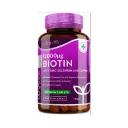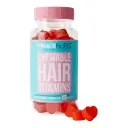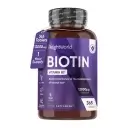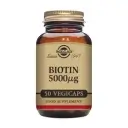Vitamins for hair growth [2025]
Adding the right vitamins for hair growth to your routine will nourish your scalp, strengthen hair follicles, and support thicker, healthier locks.
This guide will help you understand key nutrients, the best supplements available in the UK, and how they can improve your hair.
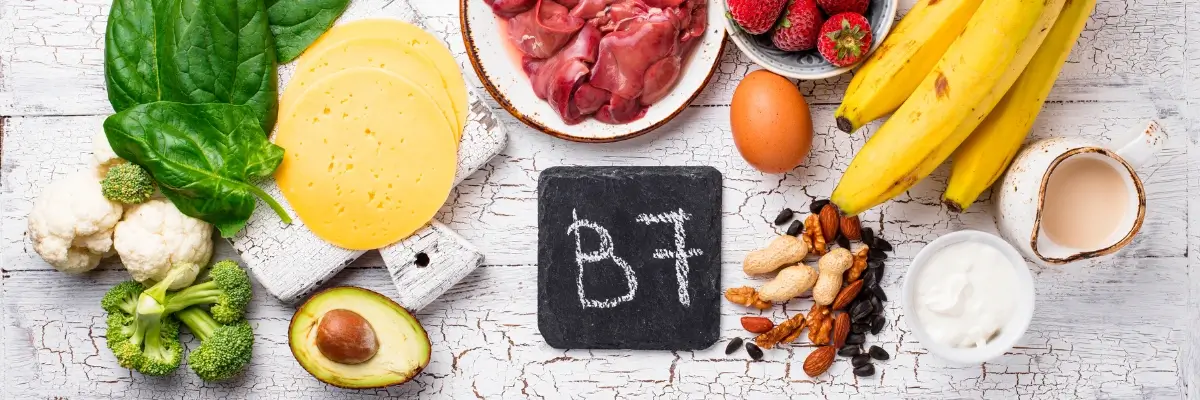
Our Picks of The Best Vitamins For Hair Growth
-
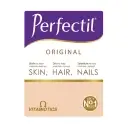 Vitabiotics Perfectil OriginalBest for Skin, Hair, and NailsPrice: £24.25 for 90 unflavoured tablets
Vitabiotics Perfectil OriginalBest for Skin, Hair, and NailsPrice: £24.25 for 90 unflavoured tablets
In this guide
- Understanding Hair Growth and the Role of Vitamins
- Essential Vitamins and How They Help Hair Growth
- Using Hair Growth Supplements Effectively
- What to Expect and Expert Recommendations
Why Vitamins for Hair Growth Are in Demand
Importance of Hair Health
Hair is more than just a physical feature; it reflects overall health and confidence. Healthy, strong hair enhances self-esteem, while issues like thinning or excessive shedding can be distressing. In today’s world, factors like stress, poor diet, and environmental exposure often compromise hair health.
For many, incorporating vitamins for hair growth into their daily routine has become a practical way to address these concerns. These supplements provide essential nutrients that support the hair growth cycle, improve scalp health, and strengthen hair strands.
Hair also plays a significant role in self-expression. A healthy mane is often seen as a symbol of vitality and youth, which further drives the demand for products that promote growth and prevent hair loss.
The Rise in Demand for Hair Growth Supplements in the UK
In the UK, demand for vitamins for hair growth has surged due to increasing awareness of their benefits. Factors like seasonal changes and restrictive diets often lead to nutrient deficiencies, especially in biotin, iron, and vitamin D. This makes supplements an attractive option for individuals looking to combat shedding and support regrowth.
Stress is another significant factor. Busy lifestyles and high-pressure environments can push hair follicles into a resting phase prematurely, leading to telogen effluvium (temporary hair loss). Supplements rich in zinc and vitamin C help replenish depleted nutrient stores, mitigating the effects of stress on hair.
The accessibility of high-quality supplements has also fueled this trend. Brands like Hairburst, Perfectil, and Nutravita offer targeted solutions, catering to a wide range of needs. Products available on platforms like Amazon UK provide convenience and cater to dietary preferences, including vegan and allergen-free options.
This guide aims to educate readers about the importance of vitamins for hair growth and how they can support healthier, fuller hair. It will cover:
- The science of hair growth.
- Essential nutrients for stronger hair.
- The best supplements available in the UK.
- How to use these vitamins effectively for long-term results.
Whether you’re experiencing hair loss or simply looking to improve hair quality, understanding how nutrition impacts hair health is the first step. Supplements are a convenient, effective way to fill gaps in your diet and achieve visible improvements in hair strength and volume.
Prioritising proper nutrition can help you regain control over your hair’s appearance and health, boosting both confidence and self-image. With the right vitamins for hair growth, achieving your hair goals is within reach.

The Science Behind Hair Growth: Do Vitamins Actually Help?
Understanding the hair growth process is essential to realizing how nutrition and supplements can make a difference. Hair grows in cycles, and each phase plays a unique role in maintaining healthy, strong strands.
The nutrients you consume directly influence the efficiency of this cycle, ensuring that hair grows thicker, stronger, and more resilient.
The Hair Growth Cycle Overview
Hair growth occurs in three distinct phases:
- Anagen Phase (Growth Phase):
This is the active growth phase where hair follicles produce new cells. It lasts anywhere from two to seven years, depending on factors like genetics, age, and health. Hair grows about 1–1.5 cm per month during this time. Proper nutrition, including essential vitamins like biotin and vitamin D, supports this phase by extending its duration and promoting robust growth. - Catagen Phase (Transition Phase):
The catagen phase is brief, lasting about 10 days. During this time, hair stops growing as the follicle shrinks and detaches from its blood supply. While this phase cannot be directly altered, nutrients like vitamin E and zinc can help maintain scalp health, preventing issues that might disrupt the transition. - Telogen Phase (Resting Phase):
This is the resting phase, lasting about three months. Hair follicles lie dormant, and old hair is shed to make way for new growth. Approximately 10–15% of your hair is in this phase at any given time. Deficiencies in iron or zinc can increase the number of follicles entering the telogen phase prematurely, resulting in excessive shedding.
The Role of Nutrition in the Hair Growth Cycle
Hair is primarily made up of keratin, a structural protein that requires specific vitamins and minerals for its synthesis. Without these nutrients, follicles may weaken, leading to thinning hair, brittleness, or even hair loss.
Key nutrients include:
- Biotin (Vitamin B7): Strengthens hair shafts and supports keratin production.
- Iron: Improves oxygen delivery to hair follicles, keeping them healthy and active.
- Vitamin D: Activates dormant follicles, promoting new hair growth.
- Zinc: Repairs damaged follicles and supports cell production.
The absence of these nutrients can disrupt the hair growth cycle, causing slower growth or more noticeable shedding. For instance, iron deficiency—common in women of childbearing age—can lead to telogen effluvium, a condition where excessive shedding occurs due to interrupted follicle function.

Benefits of Adding Vitamins for Hair Growth to Your Routine
Using supplements specifically designed for hair can offer a range of benefits. Here are the main reasons why incorporating vitamins for hair growth into your routine is a good idea:
Boost Growth
Certain vitamins like biotin and folic acid play a significant role in speeding up the hair growth cycle. They help stimulate the production of keratin and other proteins essential for healthy hair, encouraging new hair growth while also strengthening existing strands. Regular supplementation of these vitamins can help speed up growth and reduce hair thinning.
Strengthen Hair
Vitamins like Vitamin E and collagen can make your hair less prone to breakage. Vitamin E, in particular, helps repair damaged hair cells, while collagen supports the structure of your hair. This leads to stronger strands that are better equipped to withstand damage from daily styling or environmental stress.
Combat Thinning
If you’re experiencing thinning hair or hair loss, vitamins like zinc and iron can help address these issues. Zinc is essential for tissue repair and helps maintain a healthy scalp, while iron supports oxygen circulation to the scalp and hair follicles, encouraging hair growth. Together, these minerals help combat deficiencies that often lead to hair loss or thinning.
Promote Overall Health
Healthy hair is often a reflection of overall good health. The body needs a variety of nutrients to function optimally, and when these nutrients are lacking, it can show on your scalp and hair. Adding vitamins for hair growth to your routine helps nourish your hair from the inside out, promoting long-lasting results and overall wellbeing.
In short, vitamins for hair growth are essential for nourishing your hair and supporting its strength, growth, and overall health. With the right vitamins in your diet or supplement routine, you can achieve healthy, thick hair.

Key Nutrients to Look for in Hair Supplements
When shopping for vitamins for hair growth, look for supplements that contain the following powerful ingredients. These nutrients are essential for promoting strong, healthy hair:
Biotin (Vitamin B7)
Biotin is widely known as the “hair vitamin.” It’s essential for the production of keratin, the protein that makes up your hair. Biotin helps stimulate hair growth and strengthens strands. A deficiency in biotin can lead to hair thinning or hair loss, making it a must-have in any hair supplement.
Collagen
Collagen is a protein that helps improve the strength and elasticity of your hair. As you age, collagen production naturally declines, which can lead to weaker hair. Collagen supplements can help restore hair strength, shine, and overall health by providing structural support for the hair follicles and improving scalp health.
Zinc
Zinc plays an essential role in tissue repair, hair follicle health, and overall scalp maintenance. It helps prevent hair loss, encourages growth, and promotes the production of oils that keep your scalp healthy. Zinc is particularly beneficial for people with dandruff or scalp inflammation, as it helps regulate oil production.
Vitamin D
Vitamin D is crucial for creating new hair follicles. Low levels of Vitamin D are often associated with hair loss, so adding it to your supplement regimen can help boost hair growth and density. It also supports the immune system, which helps keep hair follicles healthy and free from inflammation.
Iron
Iron is vital for the transportation of oxygen to your hair follicles, which boosts follicle function and hair growth. Especially in women, iron deficiency is a common cause of hair loss. Supplementing with iron helps improve blood circulation to the scalp and encourages optimal hair health.
Who Should Take Vitamins for Hair Growth?
Not everyone may need vitamins for hair growth, but certain groups are more likely to benefit due to specific nutritional needs or life stages. Hair loss is often linked to nutrient deficiencies, which can disrupt the hair growth cycle and lead to excessive shedding or thinning.
Understanding the symptoms of deficiencies and identifying those who are most at risk can help determine when supplements might be necessary.
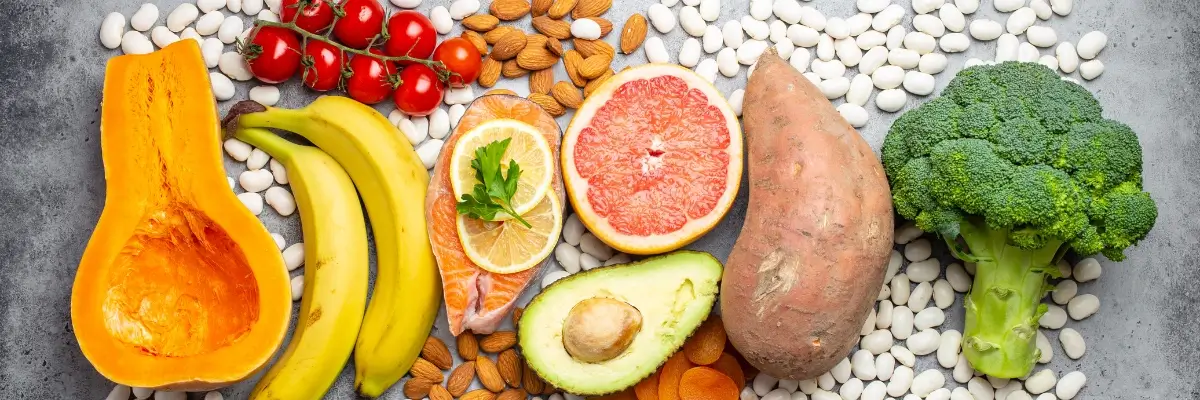
Common Symptoms of Deficiencies
Hair thinning, brittle strands, or excessive shedding may indicate underlying nutrient deficiencies. These signs suggest that your hair follicles are not receiving adequate nourishment to support healthy growth. Other symptoms that could point to a need for vitamins for hair growth include:
- Dry scalp or dandruff.
- Hair breakage or split ends.
- A noticeable decrease in hair volume.
- Slow-growing hair, even with regular care.
Individuals with these symptoms might benefit from targeted supplementation to restore essential nutrients and improve the condition of their hair.
Specific Groups That May Benefit
- Postpartum Women
After childbirth, many women experience telogen effluvium, a temporary condition where hormonal shifts cause excessive hair shedding. During pregnancy, nutrients like iron and biotin are redirected to support the baby’s development, often leaving the mother deficient. Taking vitamins for hair growth can help replenish these depleted nutrients, promoting regrowth and restoring volume. - Aging Adults
As people age, natural collagen production declines, and hair follicles become less active. This leads to thinner, weaker hair that may shed more easily. Supplements with collagen, keratin, and vitamin D are particularly beneficial for older adults, helping to maintain hair density and strength. - Vegans and Vegetarians
Plant-based diets often lack certain nutrients crucial for hair health, such as iron, zinc, and B12. Biotin and multivitamins designed for vegans can fill these gaps and ensure the hair receives the necessary nourishment for growth and resilience. - Individuals with Chronic Stress
High stress levels can push hair follicles into the resting phase prematurely, leading to shedding. Supplements containing zinc, biotin, and vitamin C can help combat stress-related hair loss by replenishing depleted stores and strengthening follicles.
Vitamin Deficiencies and Hair Loss
Hair loss often occurs as a result of deficiencies in key nutrients. The most common deficiencies linked to hair loss include:
- Vitamin D
- Role in Hair Growth: Helps create new hair follicles and regulates the hair cycle.
- Symptoms of Deficiency: Hair thinning, slow growth, or alopecia (patchy hair loss).
- How to Address It: Spending more time outdoors, consuming fortified foods, or taking supplements with vitamin D can help.
- Iron
- Role in Hair Growth: Supports oxygen transport to hair follicles, keeping them active.
- Symptoms of Deficiency: Brittle hair, excessive shedding, and poor scalp health.
- How to Address It: Iron-rich foods like spinach, red meat, and lentils, combined with vitamin C, improve absorption. Iron supplements may also be necessary for severe cases.
- Biotin (Vitamin B7)
- Role in Hair Growth: Aids in keratin production, strengthening the hair shaft and promoting elasticity.
- Symptoms of Deficiency: Brittle or thinning hair and breakage.
- How to Address It: Eggs, almonds, and sweet potatoes are excellent food sources, but biotin supplements provide a concentrated dose for those with deficiencies.
- Zinc
- Role in Hair Growth: Assists in tissue repair and follicle health.
- Symptoms of Deficiency: Dry scalp, dandruff, and weak hair follicles.
- How to Address It: Foods like nuts, seeds, and shellfish are rich in zinc, but supplementation is recommended for individuals with severe deficiencies.
How to Identify Deficiencies
Hair loss linked to deficiencies can be confirmed through a combination of symptoms and diagnostic tests. A blood test ordered by a GP can measure levels of iron, zinc, and vitamin D. Addressing these deficiencies with targeted vitamins for hair growth can prevent further hair loss and encourage regrowth.
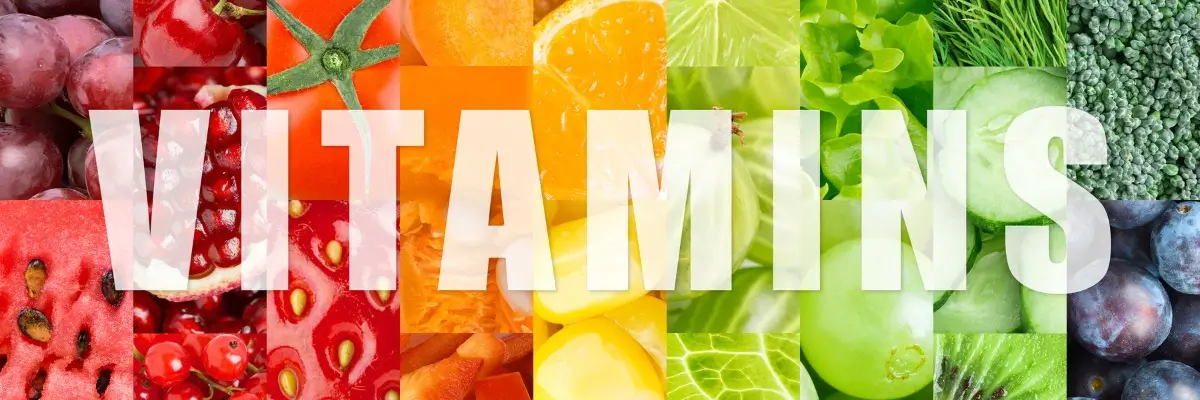
How to Use Hair Growth Vitamins Effectively
Taking vitamins for hair growth can significantly improve hair health, but how you use them matters. Proper dosage, pairing supplements with a nutrient-rich diet, and maintaining consistency are all essential to achieving noticeable results.
Dosage Recommendations
Hair growth vitamins should always be taken as directed on the product label. Overconsumption of certain vitamins can cause adverse effects, such as digestive discomfort, skin rashes, or toxicity. Key dosage tips include:
- Biotin: Most supplements contain 2,500–10,000mcg per day, which is safe and effective for promoting keratin production. Avoid exceeding recommended amounts unless advised by a healthcare professional.
- Vitamin D: Adults typically need 600–800 IU daily, though individuals with deficiencies may require higher doses prescribed by a doctor.
- Iron: The daily requirement varies based on age and gender (14–18mg for adults). Exceeding this without medical guidance may cause constipation or nausea.
If you’re unsure about your specific needs, consult a healthcare provider to personalize your dosage based on your health status and goals.
Combining Vitamins with a Healthy Diet
Supplements are most effective when paired with a balanced diet rich in natural sources of essential nutrients. A well-rounded diet enhances the absorption of vitamins and provides additional co-nutrients that promote hair health. Here’s how to optimize your diet:
- Iron-Rich Foods: Spinach, lentils, and red meat boost oxygen delivery to hair follicles. Pair with vitamin C-rich foods like oranges to improve absorption.
- Biotin Sources: Eggs, almonds, and sweet potatoes naturally strengthen hair and support growth.
- Vitamin D Foods: Fatty fish (salmon, mackerel), fortified cereals, and egg yolks help maintain follicle health.
- Zinc Sources: Shellfish, seeds, and nuts promote tissue repair and follicle strength.
Drinking plenty of water and including healthy fats, such as avocados or olive oil, in your meals can also aid the absorption of fat-soluble vitamins like A, D, E, and K.
Best Practices for Consistent Results
Consistency is key when using vitamins for hair growth. Hair grows slowly, at an average rate of 1–1.5 cm per month, so it takes time to see changes. To maximize results, follow these best practices:
- Stick to a Schedule: Take your vitamins at the same time daily, ideally with a meal to aid absorption. Set reminders on your phone to avoid missed doses.
- Track Your Progress: Use photos or a journal to document changes in your hair’s texture, volume, and shedding patterns. This helps you stay motivated during the process.
- Be Patient: Results usually start appearing within 4–6 weeks, but noticeable improvements in thickness and growth often take 3–6 months of consistent use.
- Combine with a Healthy Routine: Avoid harsh hair treatments, reduce heat styling, and focus on scalp health by using nourishing oils or shampoos.
Potential Risks and Side Effects
While vitamins for hair growth are generally safe and effective, improper use or specific health conditions can lead to unwanted side effects. Understanding these risks and taking precautions ensures you can safely incorporate supplements into your routine.
Overdosing on Vitamins
Taking too much of certain vitamins can have adverse effects, so sticking to recommended dosages is essential. Examples of potential risks include:
- Excess Biotin: While biotin is water-soluble and often excreted through urine, excessively high doses (above 10,000mcg daily) can lead to skin rashes, digestive issues, or falsely elevated lab results, particularly thyroid hormone tests.
- Too Much Iron: High doses of iron can cause nausea, constipation, stomach upset, or even iron toxicity, which can damage organs over time.
- Vitamin A Overdose: Excessive intake of vitamin A can result in dizziness, headaches, or, paradoxically, hair loss. In severe cases, it may lead to toxicity symptoms like blurred vision or bone pain.
Prevention: Always adhere to dosage instructions provided on the product label. If in doubt, consult a healthcare professional before taking large doses of any vitamin.
Allergic Reactions or Interactions with Medications
Some individuals may experience allergic reactions or adverse interactions when taking supplements.
- Allergic Reactions: Ingredients like gelatin, fish-derived collagen, or added fillers may trigger allergic responses in sensitive individuals, resulting in itching, swelling, or difficulty breathing. Always check ingredient labels, especially if you have known allergies.
- Medication Interactions: Vitamins can interfere with certain drugs:
- Vitamin E: May increase bleeding risks when taken with blood thinners.
- Zinc: Can reduce the effectiveness of antibiotics or diuretics.
- Iron: May interfere with thyroid medications if not spaced out properly.
Prevention: Consult a healthcare provider if you’re on medication, pregnant, or breastfeeding. They can guide you on potential interactions and ensure safe use.
How Long Does It Take for Hair Growth Vitamins to Work?
Taking vitamins for hair growth isn’t an overnight solution. Hair grows at a natural pace—approximately 1–1.5 cm per month—so noticeable results require time and consistency.
Realistic Timelines for Visible Results
- 4–6 Weeks:
- Initial improvements may include reduced shedding and enhanced hair texture.
- Follicles begin receiving adequate nutrients, which boosts hydration and scalp health.
- Hair strands may feel stronger and shinier.
- 12 Weeks:
- New hair growth often becomes visible. This “peach fuzz” may initially appear fine but will gradually thicken as follicles gain strength.
- Overall volume begins to improve, particularly for individuals addressing specific deficiencies like biotin or zinc.
- 6+ Months:
- Significant improvements in density and thickness are noticeable.
- Dormant follicles may reactivate, contributing to new growth, while existing strands are less prone to breakage.
- Hair becomes stronger, with a healthier overall appearance.
Factors That Influence Effectiveness
Several factors affect how quickly you’ll see results:
- Age: Younger individuals with active hair follicles often see faster results than older adults with declining follicle activity.
- Genetics: Inherited traits influence how your hair responds to supplementation.
- Severity of Deficiency: Addressing mild nutrient gaps leads to quicker results compared to reversing severe deficiencies.
- Diet and Lifestyle: A balanced diet and reduced stress levels enhance the effectiveness of supplements.
- Consistency: Daily use over several months is necessary to achieve long-term results.

Top-Rated Vitamins for Hair Growth: Expert Picks
Choosing the right vitamins for hair growth can be overwhelming with so many options available. To make things easier, here’s a closer look at some of the most popular and effective products. Each option includes its unique benefits, drawbacks, and suitability for different needs.
Nutravita Biotin Hair Growth Supplement
Nutravita’s high-strength biotin supplement is a popular choice for those seeking affordable, straightforward hair growth support. At 12,000mcg per tablet, it provides an ample dose of biotin, supported by zinc and selenium, which are essential for maintaining healthy hair, skin, and nails.
- Price: £14.99 for 365 tablets
- Perfect for: Beginners looking for an affordable, vegan-friendly supplement.
Pros:
- Budget-friendly, offering a six-month supply at a low price.
- Vegan-friendly and free from artificial additives.
- Provides key nutrients to address mild hair loss and promote strength.
Cons:
- Lacks additional vitamins like D or iron for comprehensive hair health.
- May not be effective for individuals with severe deficiencies.
Perfectil Plus Hair
Perfectil Plus Hair by Vitabiotics is a research-backed supplement designed for those seeking complete beauty support. It combines over 25 nutrients, including biotin, zinc, selenium, and marine collagen, for advanced hair care.
- Price: £13.99 for 60 tablets
- Perfect for: Individuals looking for a trusted, scientifically formulated supplement.
Pros:
- Comprehensive formula supporting hair, skin, and nails.
- Includes marine collagen for added elasticity and strength.
- Developed by a trusted UK brand with proven results.
Cons:
- Not suitable for vegetarians or vegans due to marine collagen.
- Higher price compared to simpler biotin-based supplements.
Hairburst Biotin Chewable Hair Vitamins
Hairburst makes supplementation fun and easy with its berry-flavored biotin gummies. These chewable vitamins contain biotin, selenium, and zinc, targeting hair growth and strength in an enjoyable format.
- Price: £19.99 for 60 gummies
- Perfect for: Those who dislike swallowing tablets or prefer a tasty, on-the-go option.
Pros:
- Tasty, chewable gummies make supplementation enjoyable.
- Vegetarian-friendly and free from artificial sweeteners.
- Includes essential nutrients for reducing breakage and improving hair texture.
Cons:
- Higher cost for a one-month supply compared to other options.
- May not suit those needing additional nutrients like iron or vitamin D.
Viviscal Hair Growth Supplements
Viviscal is a top choice for those experiencing thinning hair. Its proprietary AminoMar C™ marine complex, combined with biotin, zinc, and vitamin C, is clinically proven to promote thicker, fuller hair.
- Price: £33.99 for 60 tablets
- Perfect for: Men and women with noticeable hair thinning or shedding.
Pros:
- Clinically tested for effectiveness in promoting hair thickness.
- Includes key nutrients to reduce shedding and support follicle health.
- Trusted by dermatologists and backed by years of research.
Cons:
- Expensive compared to other supplements.
- Contains marine-derived ingredients, making it unsuitable for vegetarians or vegans.
Vitabiotics Perfectil Original
-
 Vitabiotics Perfectil OriginalBest for Skin, Hair, and NailsPrice: £24.25 for 90 unflavoured tablets
Vitabiotics Perfectil OriginalBest for Skin, Hair, and NailsPrice: £24.25 for 90 unflavoured tablets
Perfectil Original is a simple, budget-friendly multivitamin that supports hair, skin, and nail health. It contains biotin, zinc, and selenium, making it a good choice for general beauty support.
- Price: £9.95 for 30 tablets
- Perfect for: Budget-conscious users looking for a reliable beauty supplement.
Pros:
- Affordable and easily accessible in the UK.
- Covers essential nutrients for maintaining healthy hair.
- Suitable for everyday use alongside a balanced diet.
Cons:
- Does not include advanced ingredients like collagen or keratin.
- May not address severe deficiencies or hair loss issues.
Nature’s Bounty Biotin 1000µg
Nature’s Bounty Biotin is ideal for those focusing solely on strengthening hair with a no-frills supplement. This vegetarian-friendly option delivers biotin to support keratin production and reduce breakage.
- Price: £8.99 for 100 tablets
- Perfect for: Those addressing mild biotin deficiencies on a budget.
Pros:
- Affordable and simple, targeting biotin-specific deficiencies.
- Free from artificial colors, flavors, and preservatives.
- Vegetarian-friendly, with no unnecessary fillers.
Cons:
- Limited to biotin without additional hair-supporting nutrients.
- May require pairing with other supplements for comprehensive results.
Finding the Right Fit
The best vitamins for hair growth depend on your unique needs and goals. For beginners, Nutravita Biotin offers an affordable starting point. If you want comprehensive beauty support, Perfectil Plus Hair or Viviscal are excellent options. For those seeking convenience, Hairburst gummies deliver nutrients in a tasty format.
Remember, consistency is key, and combining supplements with a nutrient-rich diet will amplify results. Whether you’re addressing thinning hair or enhancing overall hair quality, there’s a product on this list that can help you achieve healthier, stronger hair.
Final Thoughts: Do You Really Need Hair Growth Vitamins?
Hair growth vitamins can be a powerful tool for supporting healthier, stronger hair, but they aren’t a one-size-fits-all solution. Whether or not you need them depends on your individual circumstances, including your diet, lifestyle, and hair concerns.
If you’re experiencing hair thinning, slow growth, or shedding caused by deficiencies or lifestyle factors, vitamins for hair growth can help bridge the gap and improve overall hair health. However, supplements are most effective when combined with a healthy diet and lifestyle.
For those with medical conditions or persistent hair loss, consulting a healthcare provider is crucial to determine the root cause and develop a tailored solution. With the right approach, achieving healthier, stronger, and more resilient hair is entirely possible.
Citations and References
- Harvard Health Publishing: “Vitamins, minerals, and hair loss: Is there a connection?”
- Dermatology and Therapy Journal: “The Role of Vitamins and Minerals in Hair Loss: A Review.”
- Dermatology Times: “Addressing Causes of Female Hair Loss and Exploring Preventative Measures.”
- Vogue: “9 Tips For Growing Longer Hair.”
- InStyle: “Do Hair Vitamins Really Work? Experts Weigh In.”
- Longdom Publishing: “Nutrients in Hair Supplements: Evaluation of their Function in Hair Loss Treatment.”
- Verywell Health: “10 Proven Methods to Reduce Hair Loss and Improve Scalp Health.”
- JAMA Dermatology: “Nutritional Supplementation for Hair Loss.”
